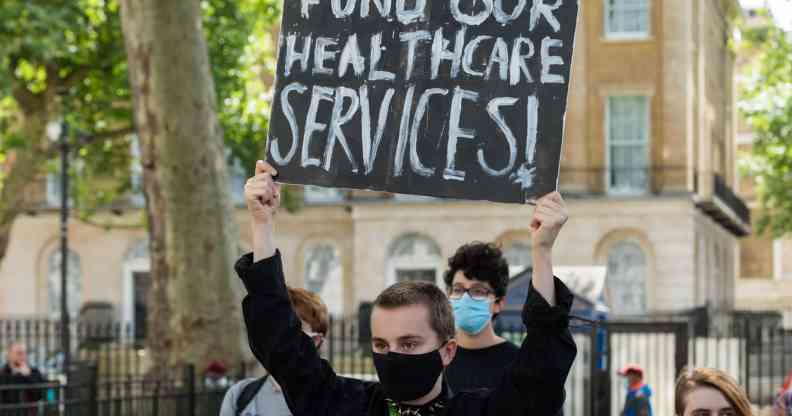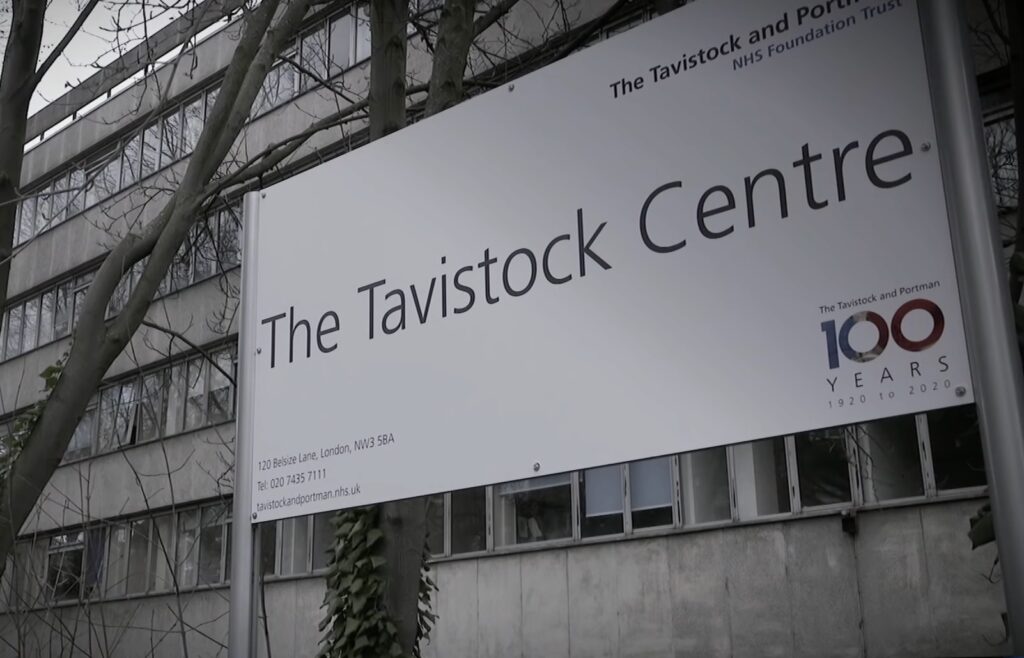NHS replacing its only youth gender clinic could be the start of much-needed change

LGBTQ+ activists are cautiously optimistic about how proposed changes to trans youth healthcare in the UK. (Wiktor Szymanowicz/Future Publishing via Getty Images)
LGBTQ+ activists are cautiously optimistic about how proposed changes to trans youth healthcare in the UK. (Wiktor Szymanowicz/Future Publishing via Getty Images)
NHS England replacing its sole gender identity clinic for children could be the beginning of much-needed change for trans youth – and is far from a “win” for the gender-critical movement.
On Thursday (28 July), NHS England announced plans for a major shakeup of gender identity services for young people.
The Tavistock and Portman NHS Foundation Trust will close its Gender Identity Development Service (GIDS) – the only such clinic for young people in the country – by next spring, with two regional centres taking its place.
The move will allow for a more “holistic” approach, with more centres to follow “over the years”.
It followed calls by Dr Hilary Cass, who is leading an independent review of gender identity services for trans youth. She said in her interim report that having a single youth gender clinic for the nation was placing staff in overwhelming working conditions and as such leaving young people at “considerable risk”.
Gendered Intelligence, a trans healthcare group, said Tavistock being wound down isn’t exactly surprising.
After all, the clinic was never designed to shoulder all trans youth in Britain, so it’s no wonder waiting lists were spiralling to more than two years on average, and the care offered was not up to scratch. For example, not a single trans young person was referred to a hormone specialist in 2021.
Localised hubs certainly could be the answer. The NHS said it intends to build a “more resilient service” by establishing two new services led by specialist children’s hospitals in London and the north-west of England.

Tavistock Centre. (YouTube)
“We hope this plan marks the beginning of widespread, accessible gender identity services for all,” Gendered Intelligence said.
“It has been clear for years – as noted by both the CQC [Care Quality Commission] and the Cass Review – that GIDS is no longer fit for purpose.
“Of course, we remain sceptical until we see results – but we tentatively hope that this marks the start of improvements for the UK’s flagging gender identity services.”
The changes could be life-changing for trans youth, given the threadbare and often delayed support they receive under the current model, Stonewall said.
Stonewall said: “The creation of new specialist regional centres in London and Manchester next year, with more to follow, will go some way to addressing the strain experienced by having just a single, centralised service.”
Among her recommendations, Dr Cass suggested the NHS introduce a way to fast-track vulnerable trans people through the application process to ensure they receive care at the “earliest feasible point in their journey”.
It seems clear that incoming changes are designed to make accessing care simpler and quicker, while also involving a wider range of healthcare specialists and building in a new research protocol around puberty blockers.
Mermaids, a trans youth charity, said the transition between the two models must have as few hiccups as possible, especially when it comes to vulnerable trans children. The new model must also stop “pathologising” trans youth as the previous one was accused so often of doing.
“We do have serious concerns with regards to the Cass Review, and while optimistic, need to see that the care pathway provided is indeed a step forward,” the charity said. “We understand there will be a new service specification in due course and will continue to engage with both Cass and NHSE to ensure that this is fit for purpose and does not seek to pathologise trans, non-binary and gender diverse young people.”
The right-wing media has leveraged the closure of the current clinic for its own purposes, with headlines loudly claiming that “safety fears” are to blame for this reorganisation of services.
But any fears expressed by Dr Cass are intrinsically linked to GIDS’ limitations. In her interim report in March, she wrote: “It has become increasingly clear that a single specialist provider model is not a safe or viable long-term option in view of concerns about lack of peer review and the ability to respond to the increasing demand.”
Regardless, many ‘gender critical’ voices rejoiced at the news of Tavistock’s gender identity clinic shuttering, including the anti-trans pressure group LGB Alliance, Allison Bailey and academic Kathleen Stock.
Former equalities minster Kemi Badenoch praised the “profound” decision, positioning it as a win for those “smeared” as “TERFS”.
But as the grassroots group Trans Activism UK made clear: “Despite the shocking amount of misinformation present in the mainstream media’s reporting of this ‘closure’ of Tavistock GIDS, and gender critical people calling this a ‘win’, this is not a cessation of services to trans adults and children.
“It is a ‘reshuffling’ of sorts to decentralise the care trans people are given.”
The group called on trans people to keep their heads up high as the focus is pulled on Tavistock shutting its doors rather than what the new model could mean for trans youth healthcare.
Much of the press, the group added, often cherry-picks the findings of the Cass review to support an anti-trans angle, despite Dr Cass stressing that trans youth must be given the best level of care possible.
“The Cass report that many articles are reporting on is not a condemnation of trans healthcare but a report on the weak points within Tavistock’s services,” Trans Activism UK said.
With Dr Cass’ guidance being given the go-ahead by the NHS, Trans Activism UK stressed that the new model will in no way be perfect at first, and said people must hold public health officials to account.
Most importantly, they called for trans people to actually be included in these decisions too.
“The trans community have been campaigning for less centralised care with more individual focus, including for minors, for decades,” Trans Activism UK said.
“The announcement of regional centres and collaboration with specialist children’s hospitals could be the beginning of better record keeping and improved care.”

